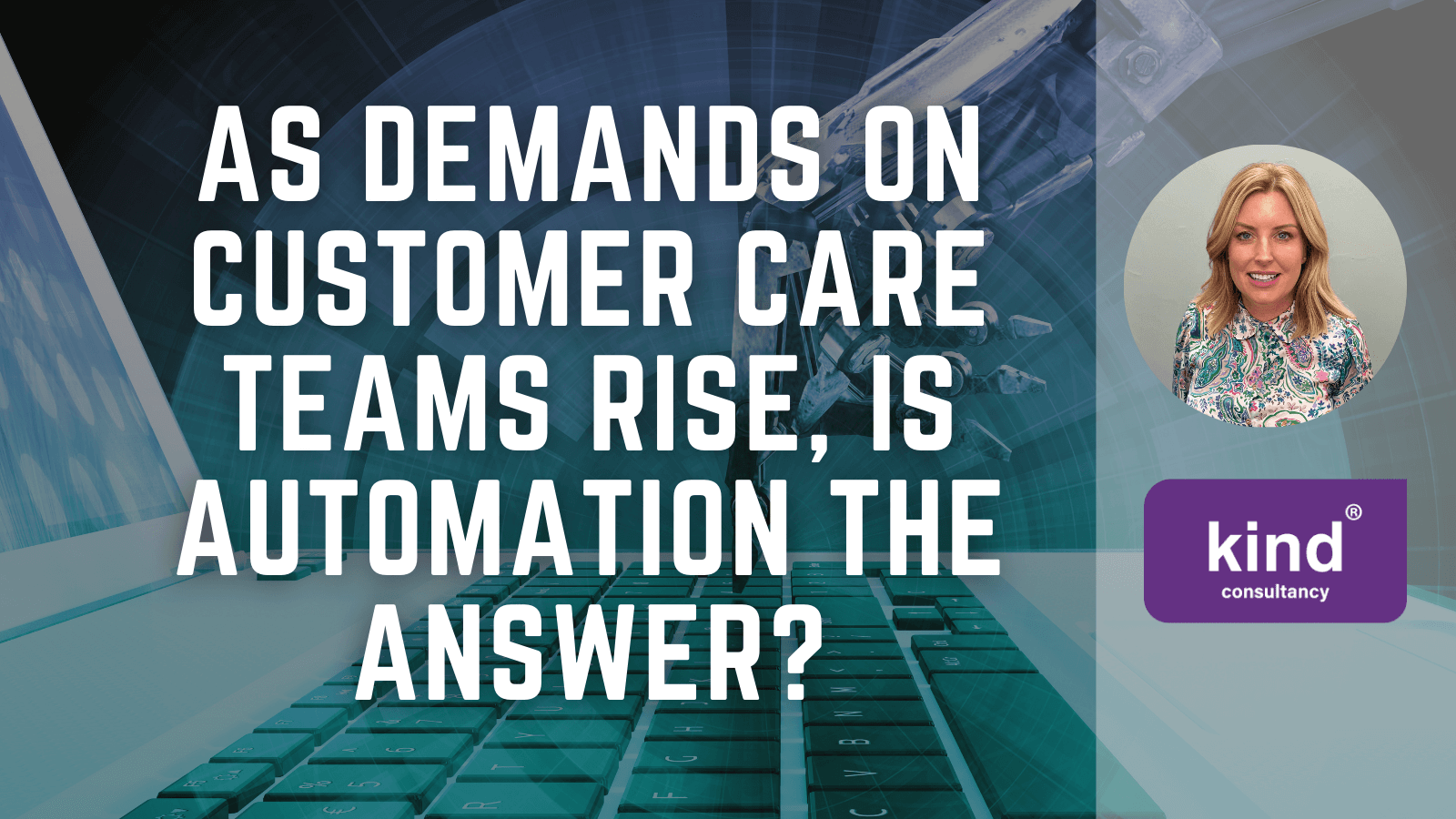As demands on Customer Care teams rise, is automation the answer?
It’s clear now, in the winter of 2022, that the cost of living crisis is real, and is not going away any time soon. A variety of complex, interlocking factors is driving up prices, with the increases hitting especially hard for household essentials and energy bills.
Ofgem has said this week that energy firms are “failing vulnerable customers” this week, with a review of their treatment leading to all 17 of the assessed suppliers being told they need to improve. A range of weaknesses were highlighted, including setting unaffordable debt repayment levels and failing to assist customers who couldn’t read their own meters.
We’re likely to soon see very similar scrutiny applied to Financial Services organisations. The FCA has set expectations that the industry should be doing all it can to support customers in this period of difficulty – and that’s on top of the expectations set around the general treatment of vulnerable customers, and the increased scrutiny of customer treatment at the heart of the new Consumer Duty rules.
The effect on Financial Services is going to be gradual. Every person and household has a different level of financial resilience – some people have more savings and higher paying jobs, more frequent and reliable income than others. Gradually in the coming months we will see more and more people reaching their threshold and struggling to make their regular loan, mortgage and credit card payments, or finding themselves only able to pay one or two of their multiple regular financial commitments. When that time comes, the workload for Collections teams is going to increase gradually and then dramatically.
How should businesses prepare for that uptick? Recently I’ve seen a number of articles about automated solutions. Technology has always been a crucial tool for the sector, and exploring the possibilities of software and AI that can guide customers through their issues certainly sounds appealing. But I would caution anyone who thinks they can buy an off the shelf product, direct their customers to an automatic chat-bot and think the problem is taken care of.
A human response is going to be absolutely vital over the next year. We will be dealing with customers in a very wide variety of circumstances. Even if the cost of living crisis the same root cause for many of them, how exactly that has manifested and effected them, and what kind of position it’s put their finances in is going to be unique to each customer. And that’s before even beginning to consider how pre-existing vulnerabilities will complicate the situation for many – as well as the barriers it may place on them being able to engage with automated systems. I think the key is going to be having well trained, empathetic listeners with an awareness of the regulatory expectation being placed upon them.
If your business does not currently have that capacity, Kind Consultancy can help. We’ve worked with organisations across Financial Services, including Banks, Building Societies and FinTech start-ups to provide both permanent and interim Collections and Complaints talent who we know already have trustworthy Vulnerable Customer expertise. We can also provide consultants with expertise in Consumer Duty and Problem Debt to act as a Critical Friend, assessing your current approach and if needed, designing and guiding any necessary transformations.
Whether you want to bring in an expert to train the Collections and Complaints staff already have, or if you want a full interim team from Kind Agile Solutions to immediately engage with an increased customer contact workload, get in touch today on 0121 643 2100, lynsey@kindconsultancy.com or selena@kindconsultancy.com for a confidential conversation if you’re interested in discussing further.




